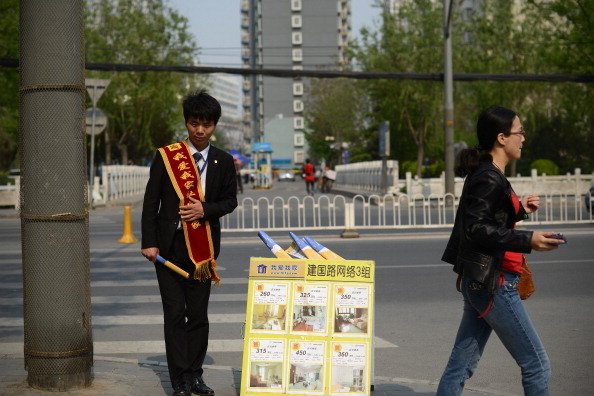In recent times, the transaction prices of some second-hand houses in first-tier and second-tier cities in China have dropped to levels not seen in 8 years. Many homeowners, under the pressure of housing loans, have had to reluctantly sell at a loss, losing a significant amount of money. This news has made it to the top trending searches on Baidu on April 16th.
According to a report from “Southern Metropolis Daily” on April 15th, in Tianhe Park, Guangzhou, areas such as Huanghuagang, Taojin, Huanshi Road, and Jianshe Dama Road have seen a sharp decline in the prices of second-hand houses in popular neighborhoods like Milk Factory and Zhujiang New Town, with prices returning to those of 2017.
In March of this year, a homeowner named Zhao Wei (pseudonym) sold a house in Tianhe Park that they bought three years ago, resulting in a loss of nearly 3 million yuan.
In Huanghuagang, a two-bedroom apartment of nearly 80 square meters was sold for over 3 million in March. A little over three months ago, the previous owner listed the property for a total price of 4.5 million yuan, but as prices dropped continuously, it eventually sold for just over 3 million yuan after negotiation, nearly a one-third discount, and slightly below the current market price, which the seller still accepted. The transaction prices of some second-hand houses in popular areas like Milk Factory and Zhujiang New Town have fallen back to the levels of 2017 and 2018.
A certain real estate agency manager, Li Yang (pseudonym), told the media, “As long as the price is right, it is relatively easier to make a sale.” “And there is still a trend of further downward adjustment.”
In Shenzhen’s Luohu District, in April 2018, a 68-square-meter low-rise two-bedroom was sold at a unit price of 52,381 yuan per square meter, while in March this year, a similar layout 61-square-meter mid-rise unit was sold at a unit price of only 40,585 yuan per square meter, which is tens of thousands of yuan cheaper than in 2018.
As of July 2024, the latest average transaction price of second-hand houses was around 59,000 yuan per square meter, with a decline of about 37.3%, reaching the prices of around August 2016.
According to a report from Fangyan on April 15th, housing prices in Beijing started to decline from October 2023. By July 2024, the average transaction price of second-hand houses was around 54,000 yuan per square meter, similar to the levels of July 2016, leading to a decline of over 25% in less than a year. In a well-known community in Haidian District, a 100-square-meter house was sold for around 10 million yuan in the first half of 2023, but by the end of 2024, a similar-sized house was sold for only about 7.5 million yuan, dropping back to the price level of 8 years ago.
In August 2024, the average transaction price of second-hand houses in Shanghai was less than 58,000 yuan per square meter, returning to the prices of October 2016.
The housing prices in the second-tier city of Wuhan continue to plummet, with new house prices falling for 8 consecutive months on a month-on-month basis, second-hand house prices falling for 10 consecutive months, and a year-on-year decline for 24 months, with the decline continuing to widen.
Reports from Fangyan disclose that the number of second-hand house listings has significantly increased in many cities. Sellers are facing the hassle of irregular viewing schedules and have to continuously lower prices to attract buyers. However, even with these efforts, transactions remain difficult, with many houses remaining unsold for several months. Some sellers have to lower prices multiple times before finally finding a buyer.
The continuous decline in second-hand house prices has heightened market hesitation. Fangyan reports that the price drop signifies shrinking assets for sellers. Many potential buyers are apprehensive about purchasing now, fearing further price drops and diminishing assets. This mentality has led to many individuals adopting a wait-and-see approach, hesitating to make a purchase even when presented with suitable properties. Moreover, the prevalent market hesitancy affects negotiations between buyers and sellers. Sellers may be reluctant to lower prices, while buyers seek further deductions, making it challenging to reach an agreement, hindering smooth transactions.
In response to this, a netizen named “求杉02J” stated, “Whether it’s an essential purchase, middle class, or wealthy individuals, those who buy properties now are likely to suffer losses of more than 10% within a year. This trend may continue for three to five years, whether it’s in core first-tier areas or fifth-tier small cities. If you don’t sell and retain the property, you will face even greater losses due to property taxes!”
Another netizen “生活領域熱愛者” believes, “There is a severe oversupply in the real estate market, with prices generally not matching incomes, and we are still in a phase where prices continue to decline from high levels! In the next five to ten years, the predominant trend will be a decline, making it difficult for second-hand houses to liquidate!”

